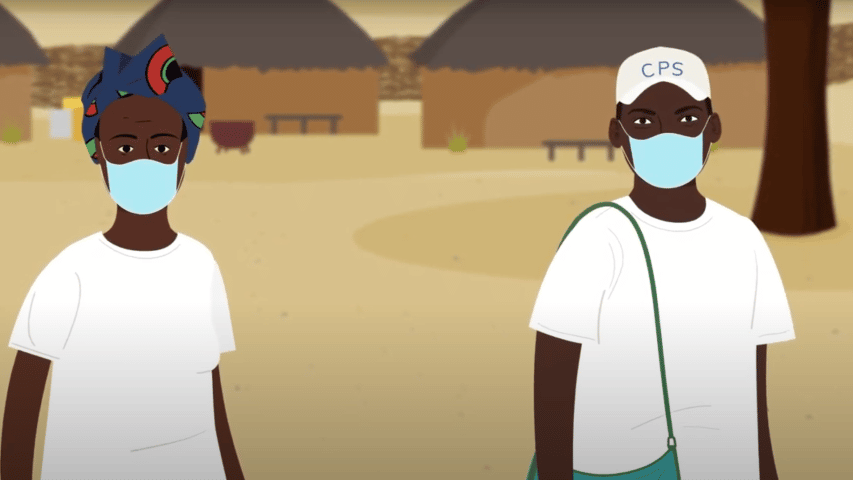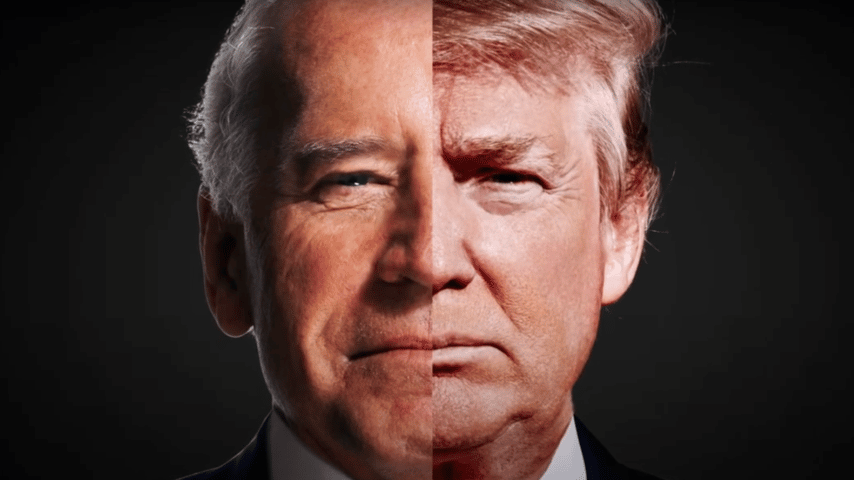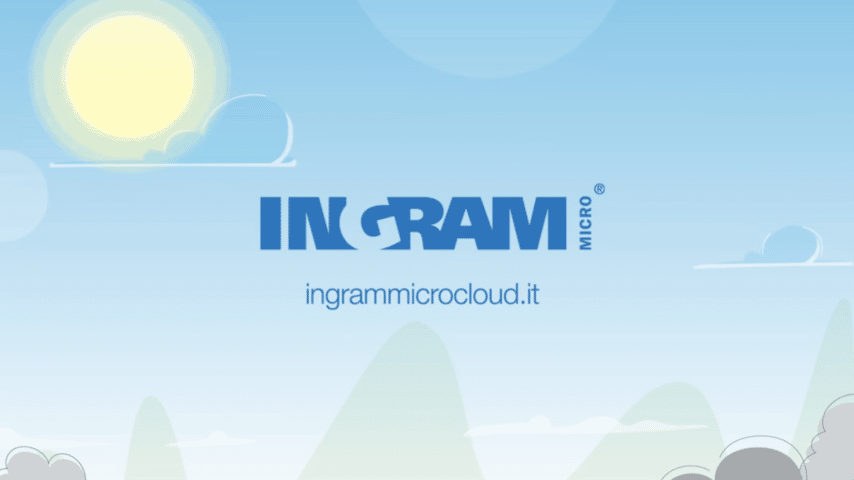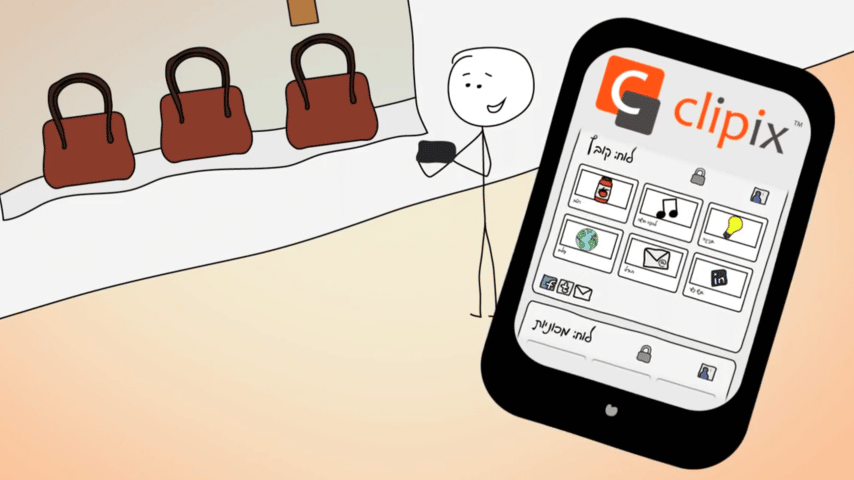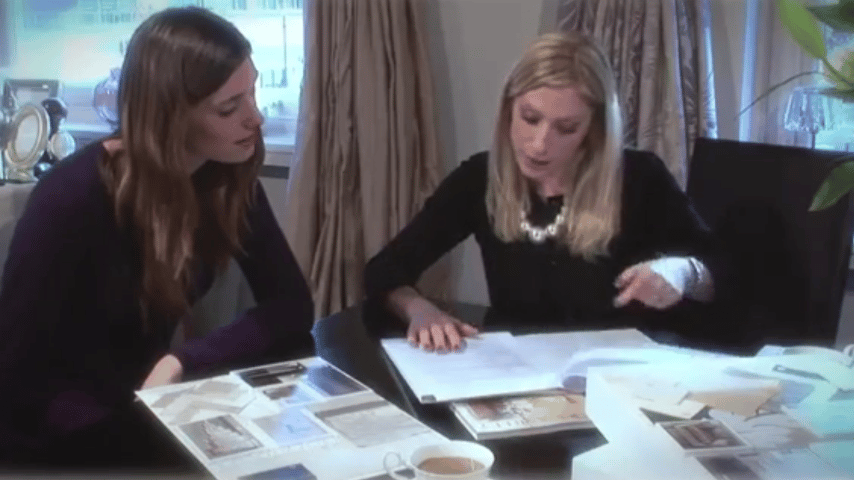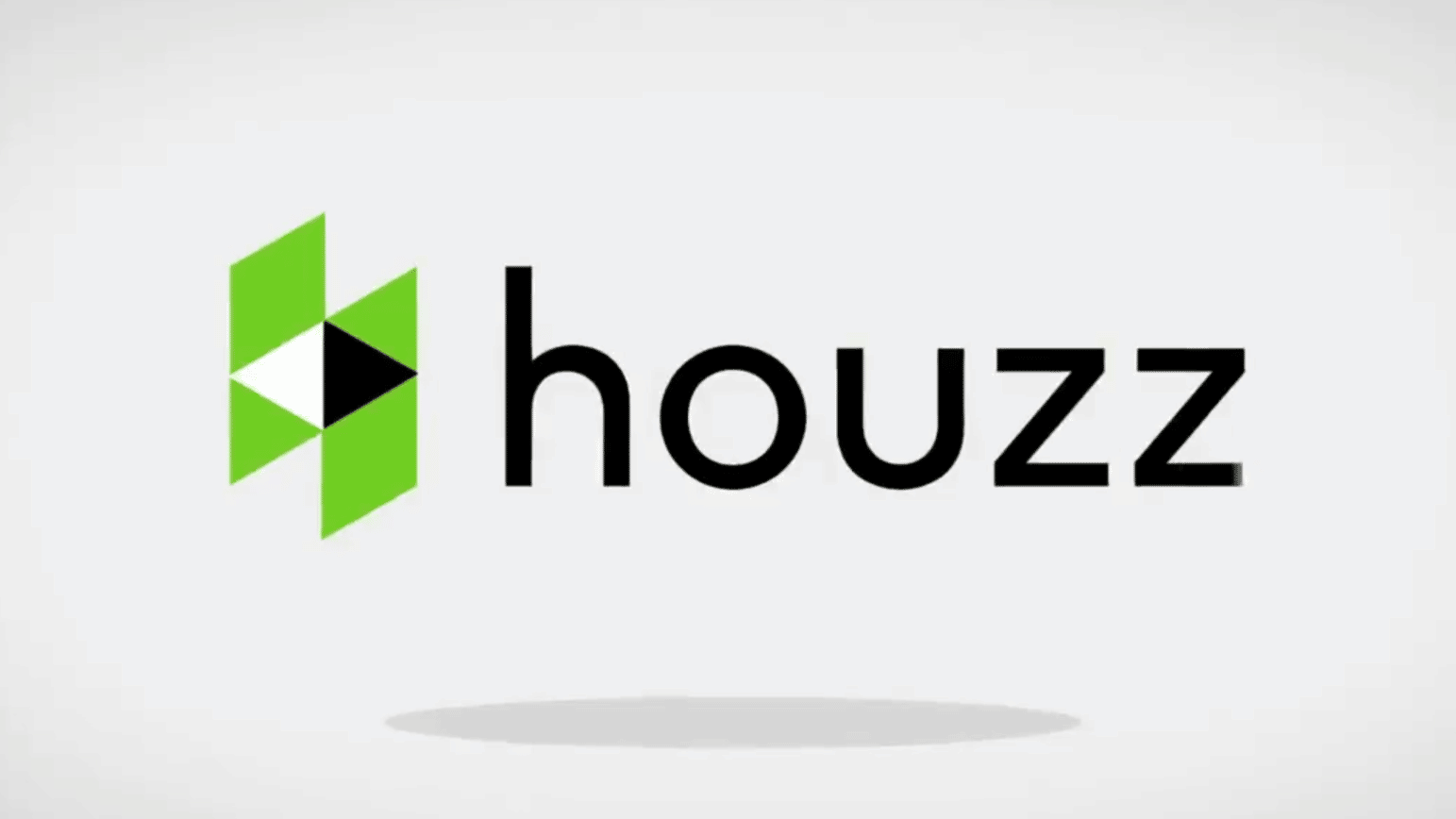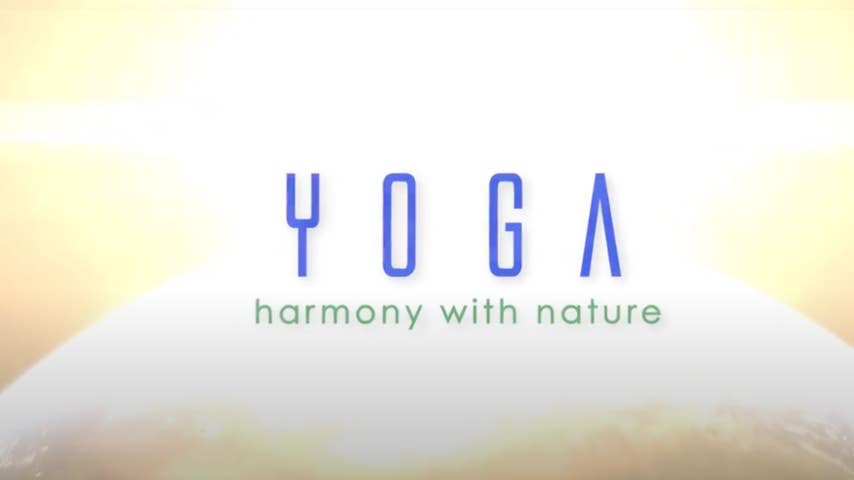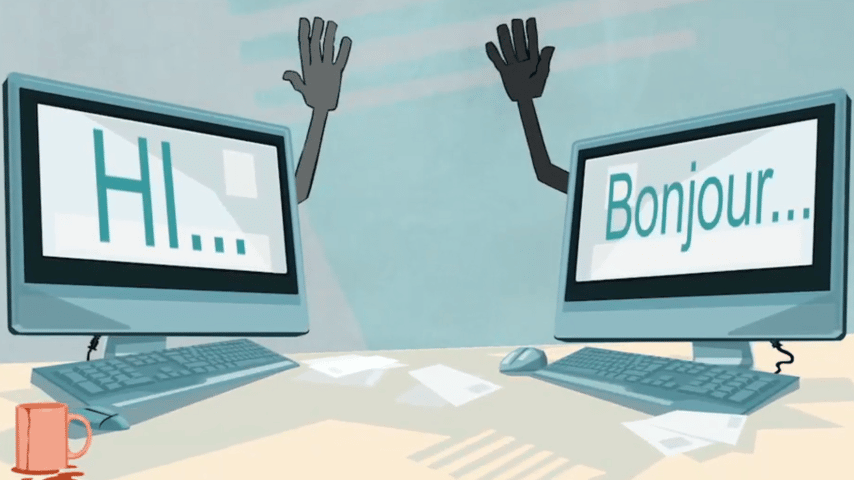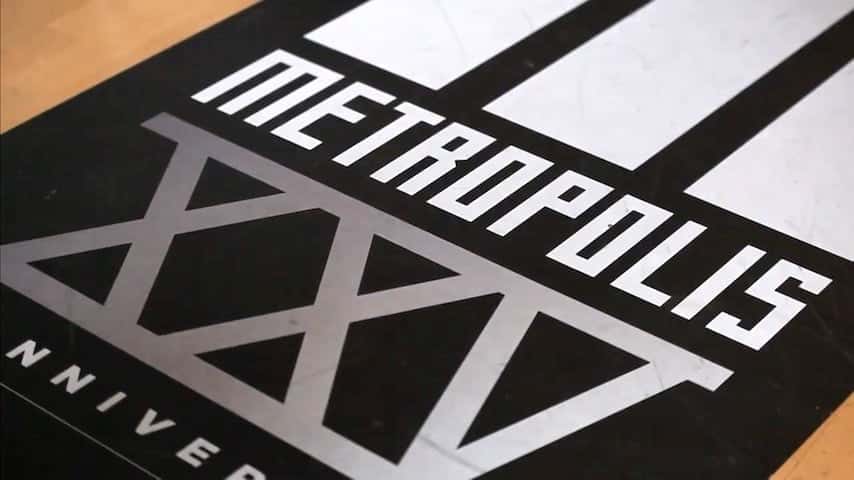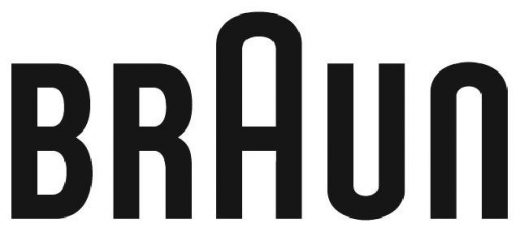Hebrew Voice Over Agency

You deserve the best! Leave your project to the experts at GoLocalise so that you can relax and be assured of getting top-notch results. Every single detail will be analysed, studied and looked after so that you do not need to worry. Some would say it’s not too classy to blow our own trumpet… but we just like to point out two very important details.
We have achieved ISO 9001 Quality Management certification in recognition of our consistent performance and high standards, and ISO 14001 Environmental Management because we care about our planet! And if you are still curious and want to know more about us, why not have a look at our studio page.
Learn more about our Voice Over Services
Let's get started!
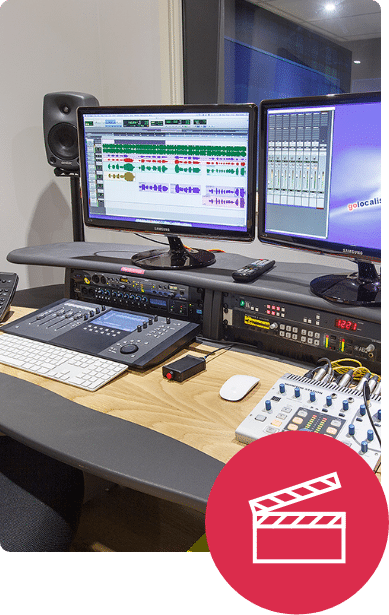
Working alongside translation & production companies
Having a strong audiovisual department on your side makes all the difference!
With GoLocalise you get an experienced and motivated team of professionals that work regularly alongside translation and production companies. We understand the technical requirements necessary to produce perfect foreign language and English voice overs. Our project managers will assist you along the way and we’ll break down the process and present it to you without the big words or technical industry jargon, so you don’t need to worry about the technical aspects and can simply concentrate on growing your business. By working with GoLocalise you’ll be able to offer additional services, i.e., voice over, subtitling and translation to your clients, with a partner who will deliver and on whom you can truly rely.
When working with translation companies we provide easy-to-follow guidelines so that you can provide your own translations for us to “convert” into subtitles, or voice over your translated scripts. Or if you prefer, we can take the entire project off your hands and keep things simple for you – it’ your call! We’re equally used to working with production companies, so we can deliver your translations or subtitles in any language and format of your choice – either burning-in the subtitles onto the video for you, or supplying you with XML or PNG files for you to do yourself – Adobe After Effects and Final Cut Pro ready files.
Reach your target market
Don’t leave your important communication to chance. Make sure your message is clearly understood by
your audience and choose GoLocalise for your next voice over project.
We have thousands of passionate and professional voice over artists ready to work with you. No matter the type of voice you are looking for, we’ll either have it in our books or find it and source it for you. We’ll organise a casting and ensure you get the perfect voice to suit your needs.
You will also benefit from having your own dedicated project manager – a single point of contact – to guide you through your project, answer any questions you may have and make things a whole lot easier.
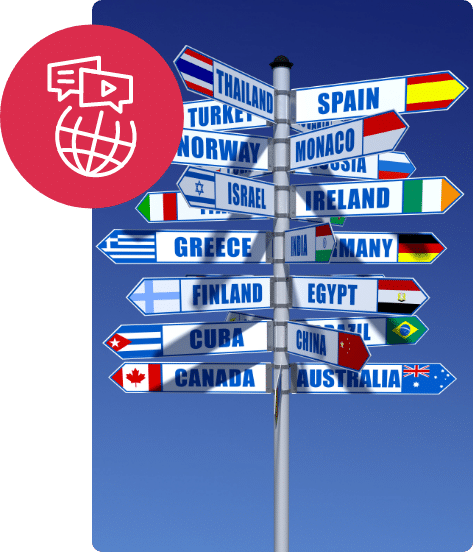

Meet your dedicated project manager
Your project will be in the safe hands of one of our multilingual project managers.
They will guide you through every step and ensure you understand the process. Our industry has a tendency to use lots of technical jargon but your dedicated project manager will be on-hand to untangle the mess and explain all you need to know to ensure you only pay for what you need.
If you need help in choosing the right voice over talent to deliver your message then just ask your project manager. From booking our voice over recording studios to ensuring you project is delivered on time in your chosen media, relax and let your experienced project manager take care of everything. You will receive unparalleled attention to detail and customer focus at competitive prices. You’ll wish everything was as easy as a GoLocalise voice over!
Perfect voice over recording studios
Your most discerning customers will thank you for choosing our modern state-of-the-art recording studios. Every detail has been carefully thought through for your comfort, leaving you to simply focus on what matters most – the voice over session.
Your recordings will sound beautiful and crystal clear thanks to our high-end studio sound-proofing and audio equipment, i.e. ProTools HD and Neumann microphones.
Maximise your budget by reducing the need for retakes with the help of our experienced in-house sound engineers who will professionally capture and edit your audio. And for those recordings in languages which neither you nor your client speak, we’ll bring a qualified pro to your session to add that essential ingredient. To make you feel right at home, we provide high-speed Wi-Fi Internet and air-con is available. And last but not least, we have the biggest cookie jar you’ve ever seen, that’ll make your custom brew taste even sweeter!
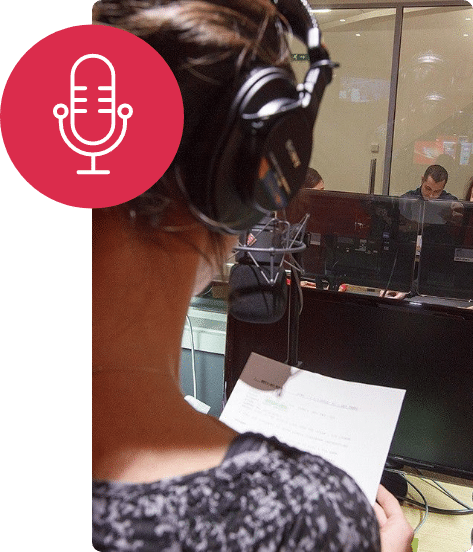
Types of Voice Over Recordings
Want to work with the best? Our dubbing and lip sync services are trusted by leading production companies, marketing and advertising agencies and TV stations from around the world.
We work in English and foreign languages, covering all international markets.
With the wide range of on-demand and online TV channels, we can help take your show, TV series or programme global with the simple addition of an English dialogue track!
Our London dubbing studios offer a full service in script translation and adaptation, casting of the voices, recording and final audio mixing of the shows so that they are ready for broadcast.
Are you looking for a voice over for your corporate video or presentation?
Then you’ve found the right place. At GoLocalise we are committed to ensuring our clients have the right tone to represent their company, service or product and we will work with you to present your message in the best possible way, so that you can impress your clients and prospects.
Once the video has been shot and edited, it’s paramount that the accompanying voice over comes across as knowledgeable about the brand and excited about the company and the services they offer. A bad voice over can make a video fall flat and impact your company’s brand and image.
Promos are a great way to launch a product or service, kick-start a campaign, make a big announcement or to just let people know about your company.
Having a great video is important, but having an engaging voice helps hammer home your message and grab the viewer’s attention.
From deep sexy voices to the “guy-next-door”, no matter what type of promo voice talent you are after, we have what you’re looking for. We are only a call or email away or, if you prefer, visit our get-a-quote page to discuss your project in detail. You can rest assured we’ll find the right promo voice over talent for your project and needs.
GoLocalise is able to provide your company with e-learning translation, localisation and voice over services, leaving you with a ready-to-host product.
You’ll benefit from an expert pool of highly-skilled linguists who have extensive experience in e-learning and a sound understanding of the particular industry sector in which you are dealing.
Our service includes the management of the entire process and delivery of content adapted to foreign markets.
The steps and services involved in any end-to-end e-learning project are: the translation of the course and on-screen text; the localisation of the course graphics; the voice over recording of the course with your preferred voice over talents; and quality control during which the localised course files are reviewed against the original files.
E-learning voice overs can be used for many applications such as training courses, step-by-step instructional and safety videos, technical information, online tutorials and many other informational and educational programmes. Whatever the application, our professional voice over talents can provide you with a clear, concise and accurate narration.
If you need a voice over to narrate your e-learning course or educational product you’ll need someone with the experience, clear diction and stamina to record large volumes of text.
Do you remember when you first started learning a foreign language?
The educational field has seen a transformation in recent years with the introduction of new technologies like smart boards and tablet apps. This transformation is especially evident in the voice over industry.
But we can all agree that the basics are still the same – a clear voice with good diction, a neutral accent, and a slow pace for better comprehension.
And while getting the right voice over talent may seem easy… we can assure you it is not. Many factors must be considered, for example, complicated words, “tongue twister” phrases, over-articulation, contractions, and lazy mouth to name a few.
Don’t leave it to chance, make sure your content is clearly understood by your audience and choose GoLocalise for your next educational voice over project. We have thousands of passionate and professional voice over artists ready to work with you in English or any foreign language.
How many times have you heard a horrible voice while on hold on the phone and felt like you just wanted to hang up?
Did you know that 90% of callers placed on hold, listening to silence, hang up within 40 seconds, and 30% of them never call back?
On-hold messaging or messages on hold is a service used by businesses and organisations of all sizes to deliver targeted information to their callers while they wait on hold or while they are being transferred.
Improve your customer experience, and choose a confident voice with tons of charm, warmth and enthusiasm to properly represent your company. We work with a great variety of companies, translating, adapting, casting the voice over talents and recording the telephone prompts.
Telephone prompts are recorded, cleaned, edited, split and labelled and delivered in the format of your choice, so you do not need to worry about anything!
Video games are not just for entertainment, but they are also used to educate users of all ages while forming strong virtual communities.
We know that the game doesn’t only have to look good and play smoothly, but also has to sound and read just right. That’s why we at GoLocalise provide all our clients with carefully selected linguists, who are not only specialists in the video game field but are also gamers themselves.
We look after every single detail when localising games into foreign languages and always use the latest glossaries for all the current video game platforms, Wii, PlayStation, Xbox, etc. so that terminology and platform word choices are always spot-on.
You’ll benefit from working with a company that provides the whole package under one roof: translation, quality control, testing and voice over services for all types of video games. The voice over process is overseen by language directors, i.e., native speakers who ensure the correct delivery, pronunciation and intonation of the script.
By using the right voices you can keep frustrated players motivated!
Learn more about Voice Over Services
Let's get started!
Voice Over Case Study
Bringing Animation to Life with Hebrew Voiceover Artistry
Client Profile: At GoLocalise, we thrive on the diversity of projects that come our way, each bringing its unique set of requirements and challenges. Animated projects, such as the one showcased here, hold a special place in our portfolio for the joy and creativity they entail.
Project Overview: The task was to breathe life into an animated video through a Hebrew voiceover, an assignment that our team approached with enthusiasm. Hebrew scripts come with their own complexities, but our experienced voiceover artists and sound engineers are well-equipped to tackle such challenges.
Our Approach: Relying on an accurately translated script, we focused on the precision of pronunciation and delivery, key elements in ensuring the voiceover resonated with the intended audience.
Execution: The client’s specific request was for the Hebrew voiceover to synchronise with the guide voice from the film. This was skillfully managed by our voiceover artist, with the support of our sound engineer, to ensure perfect timing and harmony during the recording session.
Quality Assurance: Animated videos demand meticulous attention to detail to achieve a flawless match between voice and animation. Through expert localisation and the adaptability of our talent, we ensured the content was perfectly aligned with the visual cues.
Outcome: The final product, delivered with our Hebrew voiceover services, met our client’s high expectations and received an A* rating for quality. The success of this project reaffirms our ability to overcome linguistic hurdles and deliver exceptional results.
Anticipating Future Collaborations: The satisfaction expressed by our client was a rewarding end to the project, and we are eager to maintain this momentum in our future engagements with them.

Price Match Promise
Challenge Our Prices, Enjoy Our Quality
A Brief History Of Hebrew
Hebrew is a West Semitic language of the Afroasiatic language family. Historically, it is regarded as the languageof the Israelites and their ancestors, although the language was not referred to by the name Hebrew in the Tanakh. The earliest examples of written Paleo-Hebrew date from the 10th century BCE. Today, Hebrew is spoken by a total of 9 million people worldwide.
Hebrew had ceased to be an everyday spoken language somewhere between 200 and 400 CE, declining since the aftermath of the Bar Kokhba revolt. Aramaic and to a lesser extent Greek were already in use as international languages, especially among elites and immigrants. It survived into the medieval period as the language of Jewish liturgy, rabbinic literature, intra-Jewish commerce, and poetry. Then, in the 19th century, it was revived as a spoken and literary language, and, according to Ethnologue, is now the language of 5 million people worldwide. The United States has the second largest Hebrew speaking population, with 220,000 fluent speakers, mostly from Israel.
Modern Hebrew is one of the two official languages of Israel (the other being Modern Standard Arabic), while premodern Hebrew is used for prayer or study in Jewishcommunities around the world today. Ancient Hebrew is also the liturgical tongue of the Samaritans, while modern Hebrew or Arabic is their vernacular. As a foreign language, it is studied mostly by Jews and students of Judaism and Israel, and by archaeologists and linguists specializing in the Middle East and its civilizations, as well as by theologians in Christian seminaries.
The Torah (the first five books), and most of the rest of theHebrew Bible, is written in Biblical Hebrew, with much of its present form specifically in the dialect that scholars believe flourished around the 6th century BCE, around the time of the Babylonian captivity. For this reason, Hebrew has been referred to by Jews as Leshon Hakodesh (לשון הקדש), “the Holy Language”, since ancient times.
Modern Hebrew is the primary official language of the State of Israel. As of 2013, there are about 9 million Hebrew speakers worldwide, of whom 7 million speak it fluently.
Currently, 90% of Israeli Jews are proficient in Hebrew[citation needed], and 70% are highly proficient.[citation needed] Some 60% of Israeli Arabs are also proficient in Hebrew[citation needed], and 30% prefer speaking Hebrew over Arabic.[citation needed] However, Hebrew is the native language of only 49% of Israelis over the age of 20, with Russian,Arabic, French, English, Yiddish and Ladino being the native tongues of most of the rest. Some 26% of Russian immigrants and 12% of Arabs speak Hebrew poorly or not at all.
Due to the current climate of globalization and Americanization, steps have been taken to keep Hebrew the primary language of use, and to prevent large-scale incorporation of English words into Hebrew vocabulary. TheAcademy of the Hebrew Language of the Hebrew University of Jerusalem currently invents about 2,000 new Hebrew words each year for modern words by finding an original Hebrew word that captures the meaning, as an alternative to incorporating more English words into Hebrew vocabulary. The Haifa municipality has banned officials from using English words in official documents, and is fighting to stop businesses from using only English signs to market their services. In 2012, a Knesset bill for the preservation of the Hebrew language was proposed, which includes the stipulation that all signage in Israel must first and foremost be in Hebrew, as with all speeches by Israeli officials abroad. The bill’s author, MK Akram Hasson, stated that the bill was proposed as a response to Hebrew “losing its prestige”, and children incorporating more English words into their vocabulary. Hebrew is also an official national minority language in Poland, since 6 January 2005.
The modern word “Hebrew” is derived from the word “Ibri” (plural “Ibrim”), one of several names for the Jewish people. It is traditionally understood to be an adjective based on the name of Abraham’s ancestor, Eber (“Ebr” עבר in Hebrew), mentioned in Genesis 10:21. This name is possibly based upon the root “ʕ-b-r” (עבר) meaning “to cross over”. Interpretations of the term “ʕibrim” link it to this verb; cross over and homiletical or the people who crossed over the river Euphrates. In the Bible, the Hebrew language is called Yәhudit (יהודית) becauseJudah (Yәhuda) was the surviving kingdom at the time of the quotation (late 8th century BCE (Is 36, 2 Kings 18)). In Isaiah 19:18, it is also called the “Language of Canaan” (שפת כנען).
Hebrew belongs to the Canaanite group of languages. In turn, the Canaanite languages are a branch of the Northwest Semitic family of languages. According to Avraham ben-Yosef, Hebrew flourished as a spoken language in the Kingdoms of Israel and Judahduring about 1200 to 586 BCE. Scholars debate the degree to which Hebrew was a spoken vernacular in ancient times following the Babylonian exile, when the predominant international language in the region was Old Aramaic.
Hebrew was nearly extinct as a spoken language by Late Antiquity, but it continued to be used as a literary language and as the liturgical language of Judaism, evolving various dialects of literary Medieval Hebrew, until its revival as a spoken language in the late 19th century.
What our happy customers say
Thomas Kennedy
Designer at Atlas Knowledge
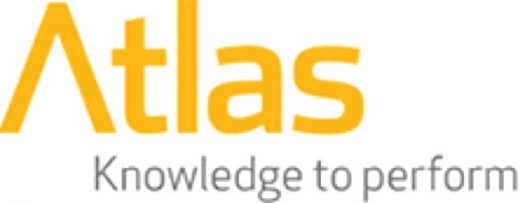
Philippa Strandberg-Long
Deputy Course Leader - Acting, Italia Conti
Stefanie Smith
Producer at Education First
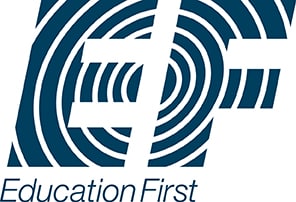
Patricia Leon-Fedorko
Account Specialist at Advanced Language

Jonathan Lapps
Account Manager at Epipheo
Marion Hirst
Translation Project Manager at Language Wire
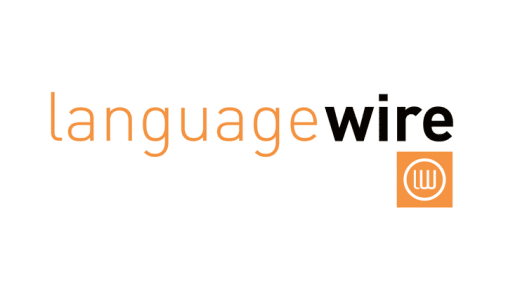
The Complete Solution To Adapt Your Content
Looking to get your entire project under one roof? Look no further, we can help you make life easier for you!

- Neumann Microphones
- On-hand Sound Engineers
- Talented Voice Over Actors
- State-of-the-art Recording Studios

- Tailored to Your Business
- Stringent Quality Control Process
- Laser-Focused Project Managers
- Global Network of 600+ Languages

- Professional Subtitlers
- Open/Closed Captions & Web
- Industry-Standard Software
- Subtitle Burn-in & Graphic Editing

- Improve accessibility
- Reach a wider audience
- Increased SEO and video views
- Maximise your video's engagement



